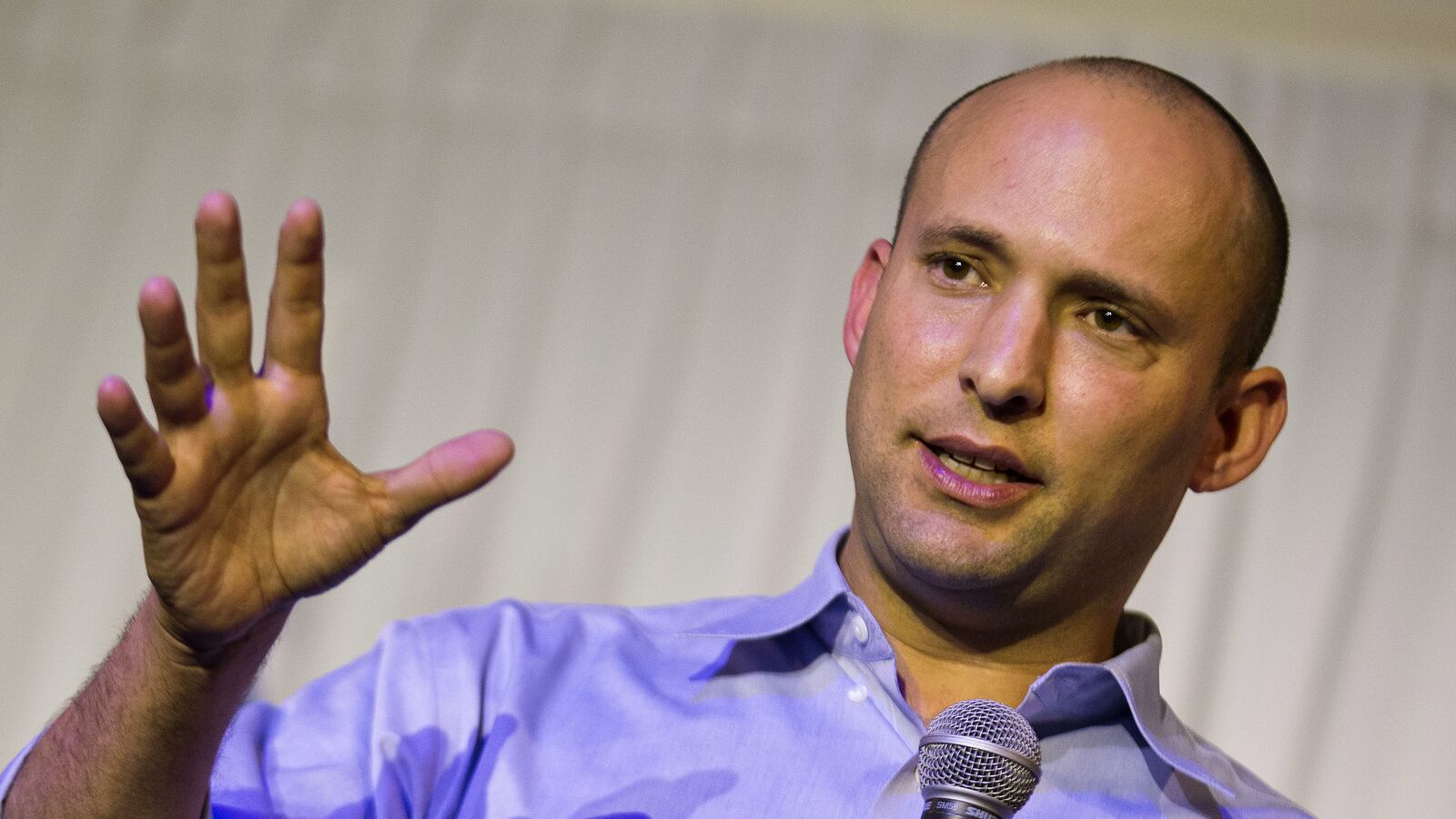Israel’s new political discourse was on display at an election panel debate targeting English speakers in Tel Aviv last week. And not only the social protest discourse of economic justice for the poor and middle class, which has displaced the classic peace vs. settlements debate that has dominated Israeli politics for 25 years. There is an even newer, less familiar discourse, with Jewish values used to justify everything from reversing the income gap to imposing universal conscription, and Zionism serving not as a code word for right-wing nationalist jingoism, but as a source of solidarity and pride for the general Jewish population.
An audience of around 100 gathered at Beit Daniel, the Center for Progressive Judaism for Tel Aviv-Yafo, for the event sponsored by the Jerusalem Post and the Association of Americans and Canadians in Israel. A decorous group of nine panelists presented their positions one at a time, following distinctly un-Israeli rules of etiquette.

No question there was an extra dose of Jewish talk because audience members were English-speaking Jewish immigrants, most of them likely self-defined Zionists with personal commitments to diverse forms of Judaism. It was the consensus of the panel, for example, that women should be able to pray at the Western Wall any time they please, wrapped in tallitot. Hatnuah’s Alon Tal described his daughters’ experience at Women of the Wall protests, and presented Tzipi Livni as the only masorti (traditional but not Orthodox or secular) candidate.
“It is forbidden to force others to pay for you to study,” Rabbi Dov Lipman of Yesh Atid, an iconoclastic ultra-Orthodox activist, quoted Maimonides in calling for 900 million shekels in subsidies to be taken away from ultra-Orthodox draft dodgers. In fact, all the panelists, including Shas’s ambassador to unorthodox forums, Menahem Shemtov, supported universal conscription or National Service.
But Jewish talk—maybe it should be called Jewish values talk—has taken on more importance in this election because it is key to the Jewish Home’s successful outreach beyond its Orthodox settler base.
With the same mix of boyish charm and practiced demagoguery that has launched his patron, Naftali Bennett, to instant fame, Jeremy Gimpel declared, “We've come to bring values back to Israel,” and called for renewed Zionism and social solidarity. The Jewish Home’s Judaism is about “Jewish heritage,” Gimpel insisted, “not about Jewish observance,” epitomizing his party’s rebranding outreach to non-Orthodox Jews.
The Jewish Home message stood in stark contrast to the more familiar far-right tropes about never relinquishing settlements and “Jordan is Palestine,” offered by Nily Shiryon from Strong Israel (as if 138 nations had not just recognized Palestine). The Jewish Home’s position on settlements is not much different from Strong Israel's—“Everyone knows we have no partner on the other side right now,” Gimpel said—but their revamped rhetoric focusing on Jewish values sounds different. If elections were limited to Israelis under 45, Gimpel claimed, the Jewish Home would be Israel's largest party, and if the response of the younger members of the audience was any indication, he might be right. Even hackneyed standards like “We must never give in to terror” got Gimpel’s supporters cheering.
The debate proved a study not so much in contrasting ideologies as in competing discourses. “Our parents were much poorer than we are but could afford to buy an apartment and to pay for our education,” explained Labor’s Eran Margalit, sounding his party’s social protest mantra. “We are much richer than they were but we can't afford either." All parties were appalled by the income gap and the conditions of the poor, and wanted to help middle-class people, even those in the government, who didn't seem to notice their part in creating this mess.
Hatnuah’s Alon Tal, a pioneering leader of Israel’s environmental movement, was alone in delivering a green message, proposing a green tax on polluting industries and promising green values would be in his party's DNA. And Tal was the only speaker to lead with a peace message, ringing the alarm about right-wing plans to annex the West Bank.
Meretz’s Mosi Raz seconded the call for a peace process, offering the Geneva Initiative as a road map, but failed to acknowledge that we have just had a war with Hamas in Gaza. Even Raz summoned Jewish values to condemn Israel's income gap, but whether because he was one of the few non-native English speakers on the panel or because he doesn't speak American Jewish, his call for buses on Shabbat—like his un-refurbished peace arguments—did not seem to resonate with the audience.
Yesh Atid’s Lipman meanwhile pressed for low-cost housing for non ultra-Orthodox young couples, lowering the cost of utilities, and electoral reform that would do away with tiny political parties and the glut of costly and unnecessary Ministers. “What does a Minister without portfolio do when he comes to work?” pondered Lipman.
The single break in decorum came when Labor’s Margalit interrupted Jewish Home’s Gimpel’s charge that “Shelley Yachimovich wants to divide Jerusalem” with the simple retort, "That's a lie,” which it is. The only surprise was that it was Gimpel who resorted to this ancient Likud canard.
There were of course scattered potshots at Netanyahu. Labor’s Margalit castigated him for being the only Israeli Prime Minister not to seek peace with our neighbors. “Instead of being the next Begin,” mocked Margalit, “he wants to be the next Feiglin.”
Representing the government, Public Diplomacy and Diaspora Affairs Minister Minister Yuli Edelshtein warned Likud-Beitenu supporters that if they treat Netanyahu as if he’s already won a tender for the Prime Ministership, and now decide what other party they can vote for, then Netanyahu will not be the next prime minister. Based on the latest polls, this might not be the impossibility it used to seem, although that’s probably wishful thinking.





